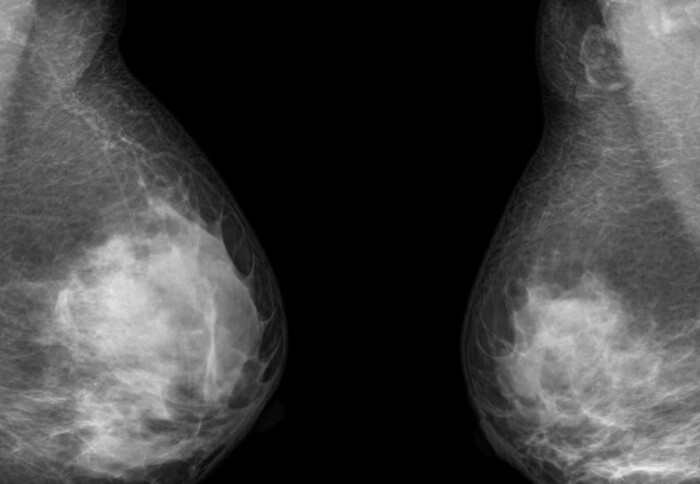Scientists investigate a new therapy for breast cancer that spreads to the brain

Imperial-led research will trial a new type of targeted radiotherapy to treat secondary breast cancer tumours in the brain.
Secondary (or metastatic) breast cancer is when breast cancer spreads to other parts of the body. While it’s incurable, the disease can be treated, but treatments are limited when the cancer has spread to the brain.
The most common treatment is whole-brain radiotherapy, which can cause serious side effects such as hair loss, nausea, vomiting, and fatigue, because healthy brain tissue receives the same dose of radiotherapy as the cancer.
Breast Cancer Now has awarded £173,414 to Dr Matt Williams and his team at Imperial College London, who will investigate whether a type of targeted radiotherapy, called DE-iPTV VMAT, could be a more effective treatment for secondary breast cancer patients.
This type of radiotherapy targets secondary breast cancer tumours in the brain while minimising damage to healthy tissues, which should cause fewer side effects for patients than whole-brain radiotherapy.
Everyone taking part in the clinical trial will receive this new type of radiotherapy so the researchers can assess its impact and how it affects patients' quality of life.
The team will also collect and analyse blood samples to see if it’s possible to tell who might benefit the most from this treatment.
In addition, Dr Williams will be using national cancer data to develop a fuller picture of people whose breast cancer has spread to the brain, analysing patients’ survival rates and use of health care services.
Currently, there is no official record of the number of people living with secondary breast cancer or of their experience with the disease. Developing a broader understanding of these patients would help scientists develop kinder, cost-effective treatments and improve quality of life.
The team at Imperial hope that using this data and the results from the initial study will help them plan a larger clinical trial to test the benefits of targeted radiotherapy treatment more thoroughly.
Dr Williams, an Honorary Senior Research Fellow in the Department of Surgery and Cancer, said: “We’ve developed a way to deliver radiotherapy that increases the dose that the tumours in the brain receive, while reducing the dose to the rest of the brain.
"This targeted approach should be more effective in treating people with secondary breast cancer in the brain than whole-brain radiotherapy and have fewer side effects. But we need to see if it’s practical and works for patients."
Dr Simon Vincent, Breast Cancer Now’s director of research, support and influencing said: "Over 1,000 people with breast cancer receive radiotherapy for tumours in the brain each year in the UK. Most of them could benefit from targeted radiotherapy that reduces the radiation to healthy brain tissue, which could improve the quality of life for people affected by the disease.
“With an estimated 61,000 people living with incurable secondary breast cancer in the UK, we hope our research could lead to more treatment options that give people more time to live their lives to the fullest."
Article text (excluding photos or graphics) © Imperial College London.
Photos and graphics subject to third party copyright used with permission or © Imperial College London.
Reporter
Benjie Coleman
Department of Surgery & Cancer